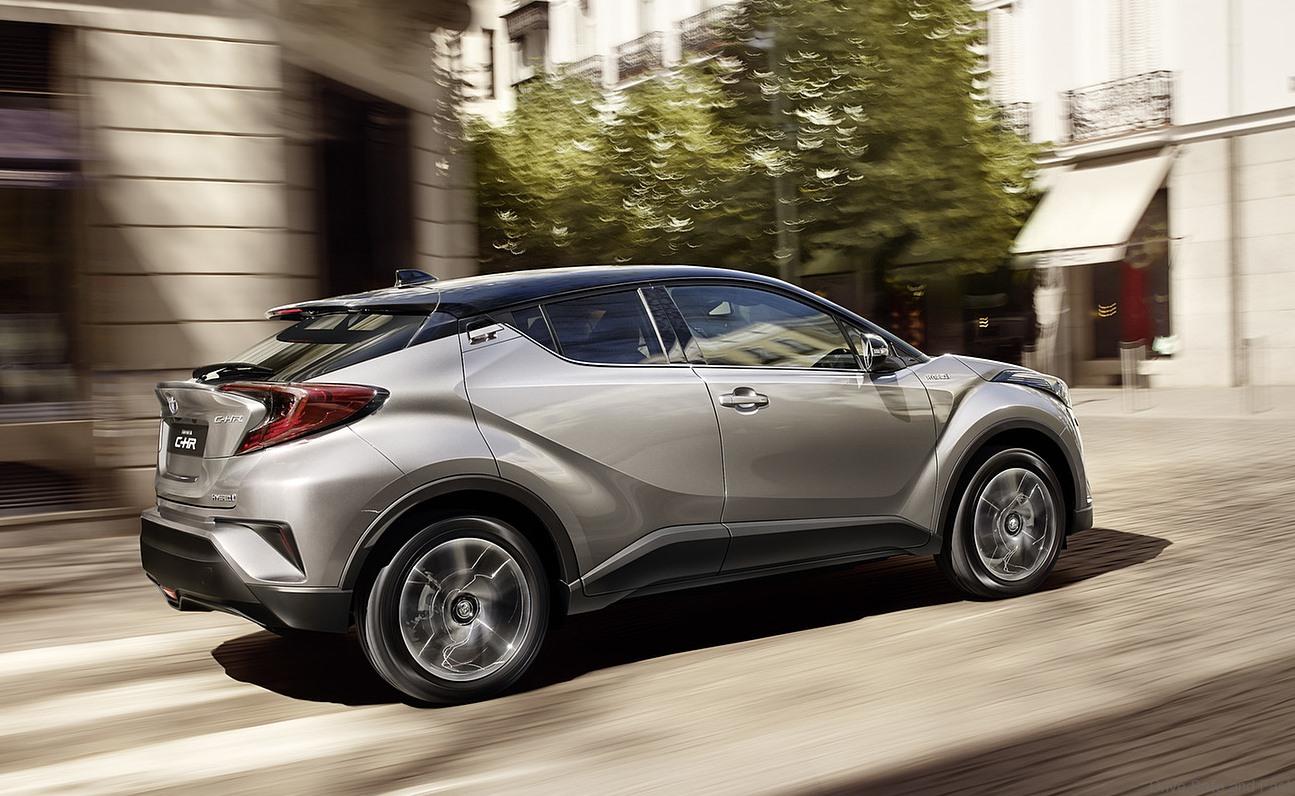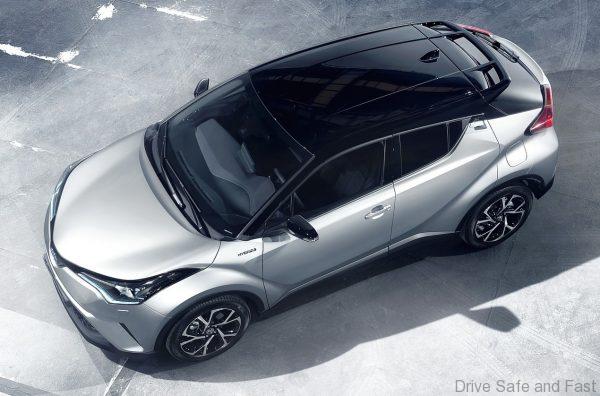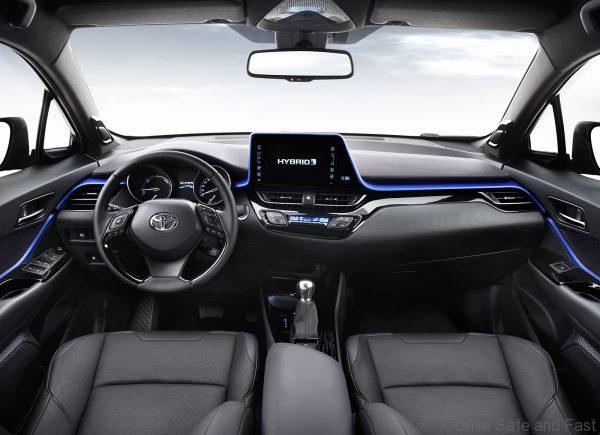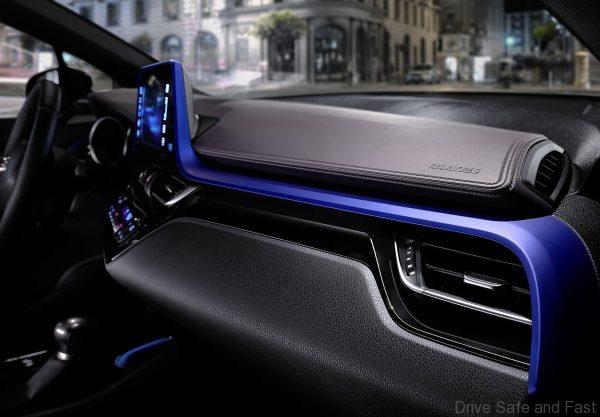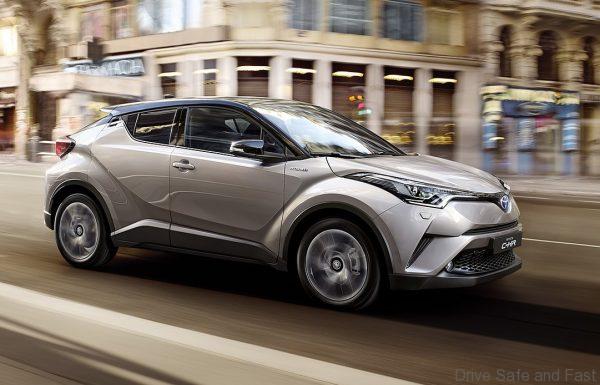Designed to stand out both within the Toyota line-up and in its segment, the all-new C-HR – or Coupé High-Rider – represents Akio Toyoda’s determination to allow greater stylistic freedom and promote engineering creativity in order to achieve eye-catching designs and enhanced driving pleasure.
The Toyota C-HR remains remarkably true to the general features of the concept-cars that attracted so much public attention in Paris in 2014 and in Frankfurt in 2015. Its coupe-like lines are a testimony to the resolve of its designers to create a style that stands out in the Toyota range, and to establish a new direction amongst mid-sized crossovers.
With the C-HR, Toyota targets a clear and singular customer profile. Predominantly driven by emotional considerations, these customers want individuality, and to be the first to try new experiences and products. Style and quality are essential considerations in any purchase they make, and the car is an extension of their personality.
Inspired by what he learned from meeting with these customers, C-HR Chief Engineer Hiroyuki Koba focused persistently on their requirements throughout the development process, setting high demands for design and perceived quality.
The Toyota C-HR’s unique character demonstrates the flexibility that the TNGA (Toyota New Global Architecture) gives to vehicle developers in the three key areas of design, powertrain and dynamics, enabling them to deliver a new and fresh take on the increasingly commoditized crossover segment.
A New Design Direction for the Crossover Segment
The all-new Toyota C-HR introduces a distinctive styling that brings newfound dynamism and sensuality to the crossover market. 4360mm long, 1795mm wide, 1555mm high (Hybrid) and with a 2640mm wheelbase, the production vehicle remains remarkably true to the concept car’s exterior which was first shown at the Paris Motorshow in 2014, and which registered extremely well with target customers.
Sophisticated Interior Design with Outstanding Sensory Quality
The driver oriented area incorporates innovative details and intuitive, approachable high technology. All operating switchgear, and an 8″ display audio touch-screen featuring a redesigned and improved HMI (Human Machine Interface) with Toyota’s Multi-Media ’16 navigation platform and enhanced connected services are slightly oriented towards the driver.
In conjunction with the asymmetrical centre console design, this brings all controls within easy reach of the driver, whilst still allowing front passenger access to the relevant switchgear.
Because the touch-screen stands proud of the instrument panel rather than being enclosed by it, the upper dashboard is considerably lower in depth, further helping driver visibility.
This outstanding new interior design will be available in a choice of three colour schemes: Dark Grey, Black/Blue and Black/Brown.
Equipment Levels to Suit the Most Demanding Customers
Reflecting the demands of its target customer, the Toyota C-HR can be equipped with a wide variety of features.
As part of Toyota’s commitment to democratise advanced safety equipment, Toyota Safety Sense is standard across the range. The system includes a Pre-Collision System (including Pedestrian Recognition), Adaptive Cruise Control, Lane Departure Alert with steering control, Automatic High Beam and Road Sign Assist (Road Sign Assist is not available on the entry grade).
Top-of-the-range customers will be able to specify a smart entry system, privacy glass, bespoke upholstery including part-leather seats, Toyota’s revolutionary S-IPA system (Simple Intelligent Park Assist), 18” alloy wheels and Bi-tone metallic paintwork.
Concert Hall Sound
Providing the ultimate in sound reproduction in the C crossover segment, the new C-HR may be equipped with a tailor-made JBL premium audio system comprising an 8-channel, 576 Watt stereo amplifier and 9-speakers, including two newly patented acoustic JBL wave guides, known as horn tweeters.
An in-depth customer analysis was taken into account for the system design and resulted in the front cabin orientation of the speaker layout and the use of a precisely integrated, A pillar-mounted horn tweeter -a JBL system signature- to deliver crisp, clear sound.
As well the two 25 mm horn tweeters and acoustic wave guides, the system further features two 80 mm wide-dispersion units and two 17 cm sub-woofers in the front of the C-HR, and, in the rear, two 15 cm full-range speakers and a 19 cm sub-woofer in a dedicated, 10-litre, ported enclosure.
Available in combination with the navigation option, the JBL premium audio system also incorporates lossless audio encoding.
State of the Art Powertrains
The Toyota C-HR will be fitted with the latest-generation hybrid power plant, the C-HR generates CO2 emissions as low as 85 g/km – a figure unrivalled within its segment – and returns combined fuel consumption of only 3.7 l/100 km.
Delivering 90 kW/122 DIN hp, this new hybrid powertrain is not only more efficient and lighter than the previous system, but also offers sharper performance. Detailed design changes to the engine have resulted in a thermal efficiency of 40% – a world-beating performance for a petrol unit.
The C-HR is also available with a new 1.2 litre turbo engine, which debuted in the Auris. Delivering 85 kW/116 DIN hp and 185 Nm of torque, this unit generates CO2 emission from 128 g/km and returns combined fuel consumption of from 5.7 l/100 km. It may be mated to either a 6-speed manual gearbox or a Continuously Variable Transmission. CVT equipped versions are available with either front- or all-wheel drive.


